Emergency Dentist – Clute, TX
Same-Day Dental Care When Your Smile Needs It
Dental emergencies tend to be the result of decay/infection or physical trauma. No matter which kind you’re suffering on, you should get immediate treatment to protect your smile. At Woodshore Family Dentistry, we’ll take the time to make sure you’re comfortable regardless of what type of oral health issue you’re dealing with, and we’ll strive to put a stop to your pain and repair the damage in a timely manner. Call us right away if you or someone in your family need urgent dental care from our emergency dentist in Clute.
Why Choose Woodshore Family Dentistry for Emergency Dentistry?
- Comprehensive Dental Care in One Location
- Same-Day Emergency Dental Appointments
- After-Hours Emergency Dental Care Available
How We Treat Dental Emergencies
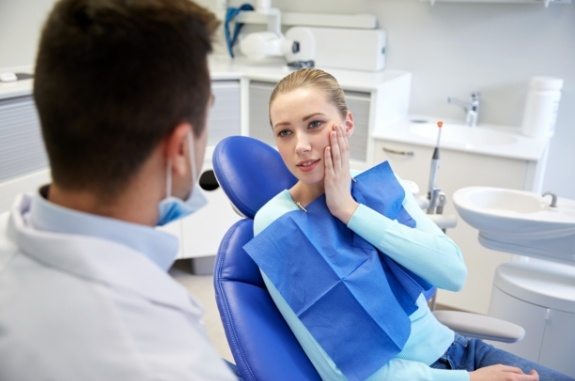
We’ll schedule an appointment to see you as soon as possible, ideally on the same day. (We offer after-hour emergency dental appointments for those that need them.) Once you arrive, we’ll take steps to address your immediate discomfort, and we’ll complete a comprehensive emergency dental exam to figure out what the true source of the problem is. We’ll then explain our recommendations for treatment and provide you with the estimated costs and expected timelines so that you can make the right decision. Then all that’s left is to get your smile the care it needs!
The Most Common Dental Emergencies
“Dental emergency” can refer to many different situations, so some people aren’t entirely sure what counts and what doesn’t. If you’re ever in doubt, you can call our dental office and tell us about your symptoms; our team can help you decide whether or not an immediate appointment is needed. In the meantime, here are some particularly common examples of dental emergencies.
Root Canal Treatment
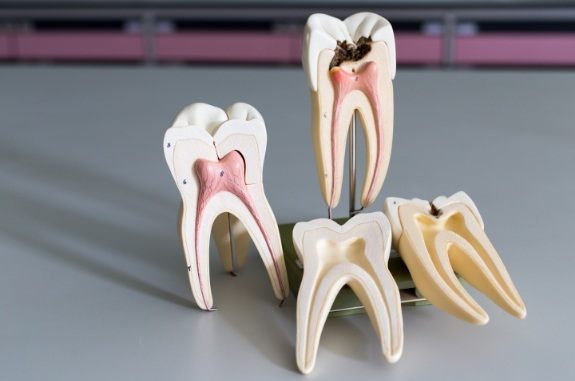
If you have a toothache, we can take an X-ray to see if the pulp inside the tooth has been infected. If it has, we’ll need to remove it as soon as possible via root canal treatment. We’ll numb your mouth and use dental sedation as necessary to keep you comfortable; as a result, the procedure should be no more uncomfortable than getting a filling, and you can look forward to finally putting a stop to your tooth pain while keeping your natural smile fully intact.
Learn More About Root Canal TreatmentTooth Extractions
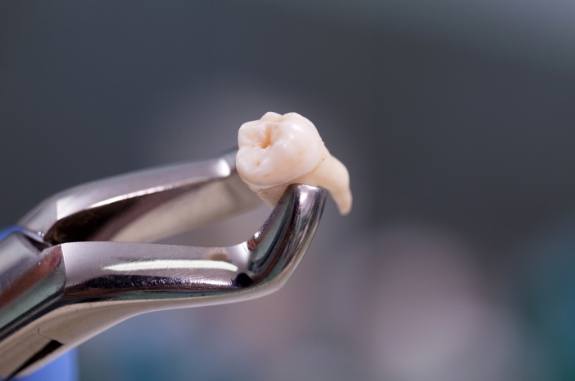
When the option is available, keeping your natural tooth is always preferable to having it removed. As such, we will only recommend a tooth extraction in specific circumstances, such as when a tooth has been so badly damaged that a filling or a crown cannot be placed. You’ll be kept comfortable during the tooth extraction process, and afterwards we’ll explain the different options for replacement, which depend on your overall health and how many teeth needed to be taken out of your mouth.
Wisdom Tooth Extractions

When the wisdom teeth are able to erupt without causing pain or getting trapped under your gums, we don’t have to remove them. Unfortunately, more often than not, there just isn’t room for the wisdom teeth, and as such they’re likely to become impacted or start crowding the other teeth. If wisdom teeth start to cause pain or lead to oral health issues such as infection, they should be removed as quickly as possible in order to protect the rest of your mouth.
Understanding the Cost of Dental Emergencies

There are many different treatments that might be recommended depending on the nature of your dental emergency, and they each come with their own cost to consider. As always, we’ll be upfront about how much you can expect to pay as well as why we’re making a specific recommendation; we want to help you put a stop to your dental pain while also protecting your bank account. You’re more than welcome to ask us about dental insurance and other options that can make it easier to pay for emergency dental care at your appointment, and you can read on to learn more in the meantime.
Why Every Dental Emergency is Different
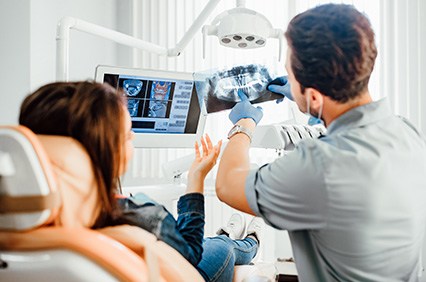
We mentioned above that there are multiple factors we need to consider when it comes to the cost. That’s largely because both the type of dental injury and the severity of the damage can vary greatly. Plus, the type and number of treatments needed to restore the look, health, and function of your smile also need to be considered. Not to worry – we will cover all of this and more at your initial consultation so you have an estimate of the cost as well as an understanding of how we arrived at the number.
Does Dental Insurance Cover Dental Emergencies?
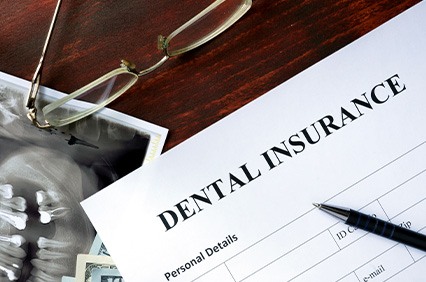
Many dental insurance providers cover between 50% and 80% of the cost of essential restorative care. Furthermore, some plans include additional benefits, like a complimentary emergency exam each year. So, yes, your dental insurance provider may cover a good portion of the cost! There is some red tape that needs to be considered, like waiting periods, so make sure to read through the fine print on your plan first. If you have any trouble understanding your coverage, you’re more than welcome to bring your questions to our knowledgeable and friendly team.
Other Options for Making Dental Emergencies Affordable

If you don’t have dental insurance, don’t let that stop you from scheduling an appointment with us! After all, we proudly offer our patients three other financial solutions: an in-house savings plan, flexible financing, and periodic specials. As a result, getting the emergency dental care you need won’t break the bank. If you want to learn more about any of these options, then the next step is simple: give us a call so we can provide you with further details and answer any questions you have.
How Taking Care Of Your Smile Can Save You Money

Remember, dental injuries are largely preventable. For example, if you wear a mouthguard during sports, you’re much less likely to knock out a tooth. If you brush and floss consistently, you’re much less likely to get a cavity. If you come to our Clute dental office every six months, you’re much less likely to need a root canal or tooth extraction. Simply put, preventive care protects your smile from harm. So, it’s important that you prioritize it!
Keys to Preventing Dental Emergencies
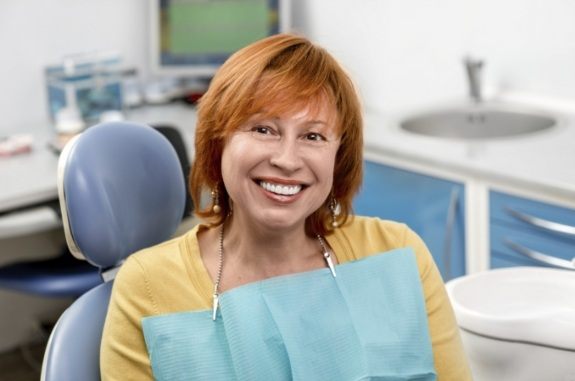
One of the worst parts about dental emergencies is that they often strike when you least expect it. The good news is – despite that – there are several things you can do to dramatically reduce your risk of experiencing one. With this in mind, keep reading for a few simple steps we recommend!
Brush, Floss, and Rinse with Mouthwash Consistently

To protect your teeth from decay-causing bacteria, you need to commit to good oral hygiene habits at home. First, use a soft-bristled toothbrush and fluoridated toothpaste to brush your teeth twice a day (and for a full two minutes each time). Second, floss and rinse with mouthwash each morning or evening to clean between your teeth, prevent plaque buildup, and keep your breath fresh.
Visit Us Twice a Year for a Checkup and Cleaning

Oftentimes, patients think that they only need to schedule a checkup if they are in pain. That’s not the case! In fact, coming to our office every six months ensures that tooth decay and other common oral health problems are detected and treated before you experience persistent discomfort, soreness, and sensitivity. So, if you’re overdue for a visit, it’s time to get your next appointment on the calendar!
Break Bad Habits, like Biting Your Nails

Habits like biting your nails may seem harmless, but they can actually lead to serious harm. That’s why we encourage our patients not to smoke, chew on ice cubes, or use their teeth to open packaging. It may take some effort on the front-end, but it will go a long way in preventing common dental injuries, like chips, cracks, and fractures. So, make it a priority!
Wear a Mouthguard When Playing Sports

Even if you don’t participate in a contact sport, you should wear a mouthguard. That way, your teeth are protected from unforeseen impact, like a bad fall.
Instead of getting a one-size-fits-all mouthguard at your local sporting goods store or online, contact our Clute dental team so we can have a custom one made for you. This will ensure that it fits comfortably while also providing your teeth with maximum protection.
Eat a Well-Balanced Diet

The last step we recommend taking to keep your smile happy and healthy is eating a well-balanced diet. In other words, fill your plate with lots of nutrient-dense, vitamin-rich foods, and keep starchy and sugary snacks to a minimum. It’s also a good idea to drink water the large majority of the time since it will help remove food particles from your teeth while also keeping you hydrated.
If you want to learn more about what you can do to lower your risk of dental damage, don’t hesitate to ask us at your next checkup!
I Need a Checkup & Cleaning I Need a Dentist for My Child I am Concerned About Bleeding Gums I Have a Cavity or Broken Tooth I am Missing One or More Teeth I Want to Enhance My Smile I am Scared of the Dentist I Have Pain in My Jaw View Our Services


